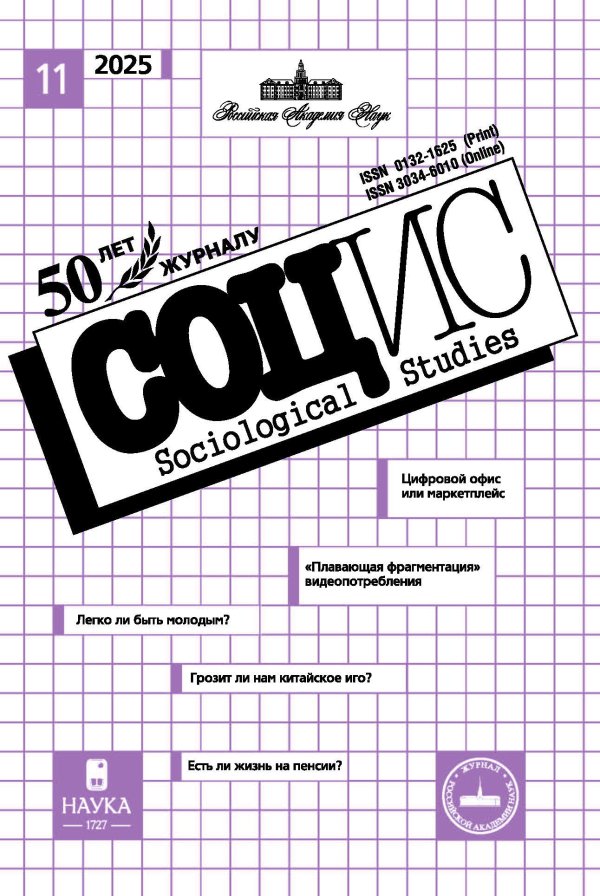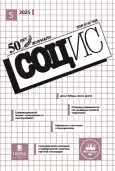“Children of War” as the Last Eyewitnesses of the Great Victory
- Authors: BRITVINA I.B.1
-
Affiliations:
- Ural Federal University
- Issue: No 5 (2025)
- Pages: 73-79
- Section: THE 80th ANNIVERSARY OF THE VICTORY
- URL: https://bakhtiniada.ru/0132-1625/article/view/309516
- DOI: https://doi.org/10.31857/S0132162525050066
- ID: 309516
Abstract
The article contains the results of an analysis of interviews with residents of the Kurgan region who experienced the Great Patriotic War as children. The author relied on the theory of children’s reflection of culture and parental behavior, as well as on the dispositional theory of personality by V. A. Yadov. For the analysis, 14 interviews and memories of military childhood were selected, collected by local historians in the city of Shadrinsk. The problem of the article is related to the identification of the phenomenon of contrast between the sharply negative attitude of “war children” to “enemies-symbols” with a condescending attitude to “enemies-humans”. The results show that children' attitudes to events were greatly influenced by films about the war, cartoons in newspapers and on propaganda posters, and conversations at school. Children aged 12–13 felt hatred for Hitler, and younger children felt anger against the background of the hardships they had to experience. The attitude towards the prisoners was cautious, without a feeling of hatred. The children learned their attitude towards the internees from their mothers, who pitied them. The author comes to the conclusion that the memories of the “children of war”, the last bearers of “living” memories, can write important pages in the social history of the Great Patriotic War.
About the authors
I. B. BRITVINA
Ural Federal University
Author for correspondence.
Email: irina.britvina@urfu.ru
Yekaterinburg, Russia
References
- Balashova A. F. (2015) Stories of the “Sacred War” in the XXI Century: Images, Plots, Motifs. Vestnik Moskovskogo universiteta. Ser. 9: Filologiya [Moscow State University Bulletin. Series 9. Philology]. No. 3: 73–81. (In Russ.)
- Beketova V. N. (1995) From Childhood Memories. In: Shadrinsk Postwar. Shadrinsk: Shadrinsk Pedagogical Institute: 68–77. (In Russ.)
- Bondyreva S. K., Kolesov D. V. (2007) Traditions: Stability and Continuity in the Life of Society. 2nd ed. Moscow: Moscow Psychological and Social Institute; Voronezh: MODEK. (In Russ.)
- Britvina I. B. (2015) Problems of Maintenance and Updating of the Great Patriotic War Memory. Sotsiologicheskiye issledovaniya [Sociological Studies]. No. 5: 18–21. (In Russ.)
- Britvina I. B., Britvin A. M. (2015) Wartime Childhood: Remember, it Can’t Be Forgotten. Izvestiya Ural. federal. un-ta. Ser. 1. Problemy obrazovaniya, nauki i kul’tury [Izvestia: Ural Federal University Journal. Series 1. Issues in Education, Science and Culture]. Vol. 138. No. 2: 177–182. (In Russ.)
- Choyropov Ts.Ts. (2015) “Grew Us Time, We Are Children of War”. In: The War Was the Day Before Yesterday… Russian Students about the Great Patriotic War: Monitoring Materials “Modern Russian Students about the Great Patriotic War”. Yekaterinburg: Ural University: 293–294. (In Russ.)
- Kozlov N. D. (2008) Conditions of Work and Life of the People during the Great Patriotic War. Vestnik Leningradskogo gos. universiteta im. A. S. Pushkina. Ser.: Istoriya [Pushkin Leningrad State University Journal. Series: History]. No. 4: 5–23. (In Russ.)
- Polyakov Yu.A., Paderin A. A. (2008) Soviet Society in the Great Patriotic War. In: War and Society in the XX century. Book 2: War and Society on the Eve and During the Second World War. Moscow: Nauka: 189–240. (In Russ.)
- Ryazan Residents’ Memories of the Great Patriotic War: a Collection of Documents from the GARO Funds. (2020) Ryazan: State Archive of the Ryazan Region. (In Russ.)
- Self-regulation and Forecasting of Social Behavior of a Personality: a Dispositional Concept. (2013) 2nd ed. Moscow: Center for Social Forecasting and Marketing. (In Russ.)
- Seniavskaya E. S. (2006) Russia’s Opponents in the Wars of the Twentieth Century: the Evolution of the “Enemy Image” in the Minds of the Army and Society. Moscow: ROSSPEN. (In Russ.)
- Shadrinsk during the War. Book 1. (1995) Shadrinsk: Shadrinsk Pedagogical Institute. (In Russ.)
- Shadrinsk during the War. Book 3. (2005) Shadrinsk: Production Association “Iset”. (In Russ.)
- Zhiromskaya V. B., Aralovets N. A., Verbitskaya O. M. (2010) The Impact of the War on the Population of the Country. Everyday Life in the Rear. In: People and War: Essays on the History of the Great Patriotic War 1941–1945. Ed. by A. N. Sakharov, A. S. Senyavsky. Moscow: Grif & Со: 462–565. (In Russ.)










